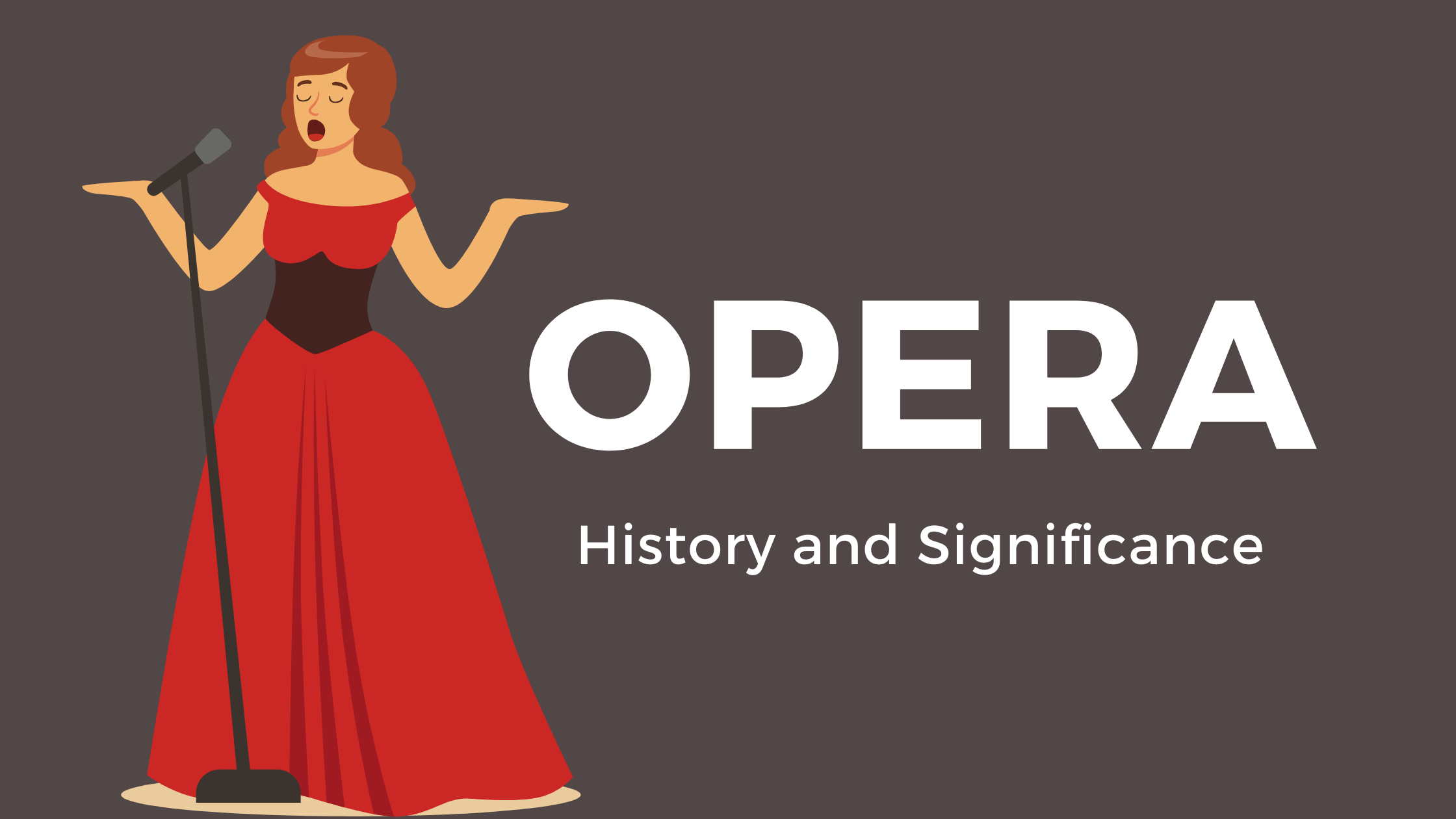The History and Significance of Opera

We have all certainly heard of opera and know what it generally is like. However, many people have stopped watching operas. Is it a dying genre of music? Is it becoming obsolete and should it?
Opera is the beautiful combination of vocals, orchestral music, drama, visual arts, and dance. Although it was/is practiced all throughout the world, it originated from Italy over 400 years ago and grew rapidly.
By the Baroque period, which was from 1600-1750, opera had already taken over Europe. It had become the most popular genre of music and performances, thus meaning that many famous composers were born. One of the greatest Baroque composers is a German man named George Frideric Handel. He lived most of his life in London where he built his career writing operas, anthems, oratorios, concert grossis, and organ concertos. His most famous opera is Solomon, where he composed a widely known piece called ‘Arrival Of The Queen Of Sheba’.
As time progressed, the classical period came along from 1750-1830. During this era, there were less elaborate music forms, and instead plots were better developed. One of the greatest composers of all time is from this period, Wolfgang Amadeus Mozart (Johannes Chrysostomus Wolfgangus Theophilus Mozart). He was Austrian and wrote countless operas, sonatas, symphonies, and concertos. As his older sister started playing the piano when he was 3, he carefully observed and was able to play efficiently and in public places by the age of six. One of his greatest operas is Idomeneo, a piece that was inspired by and based on an Ancient Greek story of the war hero Idomeneo.
When the romantic period arrived from 1830-1900, grand opera was booming and they became louder and longer. A very important style called bel canto, beautiful singing in Italian, started during this time. In songs from this era, there tend to be simpler harmonic structures than in previous periods, and they focus more on ornamentation and vocal brilliance.
In the late 1800s, two world-known musicians led the industry: Italian Giuseppe Verdi and German Richard Wagner. They thrived and performances of their operas were everywhere. Then, in the early 20th century, another Italian, Giacomo Puccini was one of the largest and most popular composers of opera.
Some may argue that opera is becoming extinct and there is no need for it anymore. However, although traditional opera has not been practiced as much as it used to be, it is still a very popular genre and without it, current pop music and culture would not be the same. Many modern songs are written with harmonies, melodies, and beats derived from classical music. Music from operas are the very foundation of current popular music.
- “Are Opera And Classical Music Still Important Today?” Arts, Culture, Theater, 21 Sept. 2016, www.artsculturetheater.com/are-opera-and-classical-music-still-important-today/
- “A Brief History of Opera.” SFOpera, http://sfopera.com/discover-opera/intro-to-opera/a-brief-history-of-opera/.
.

